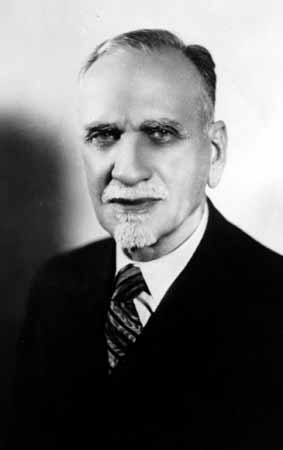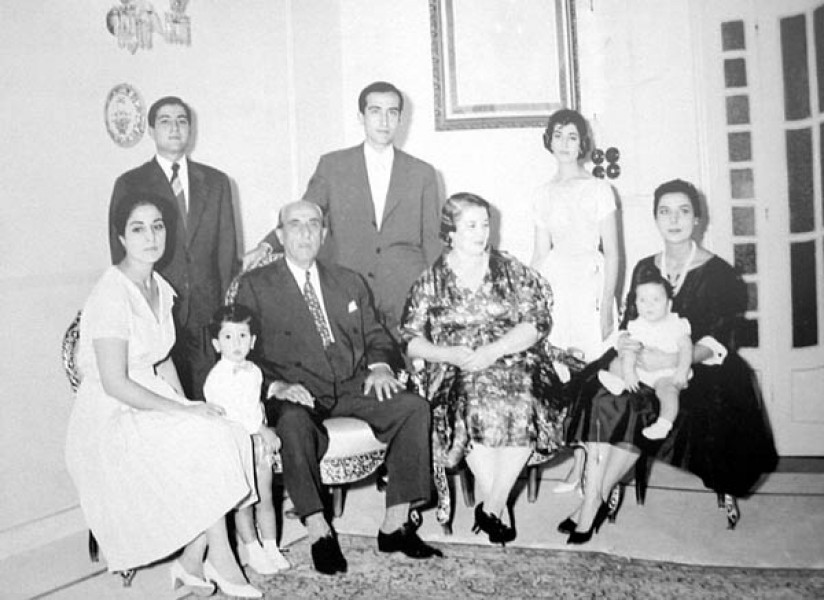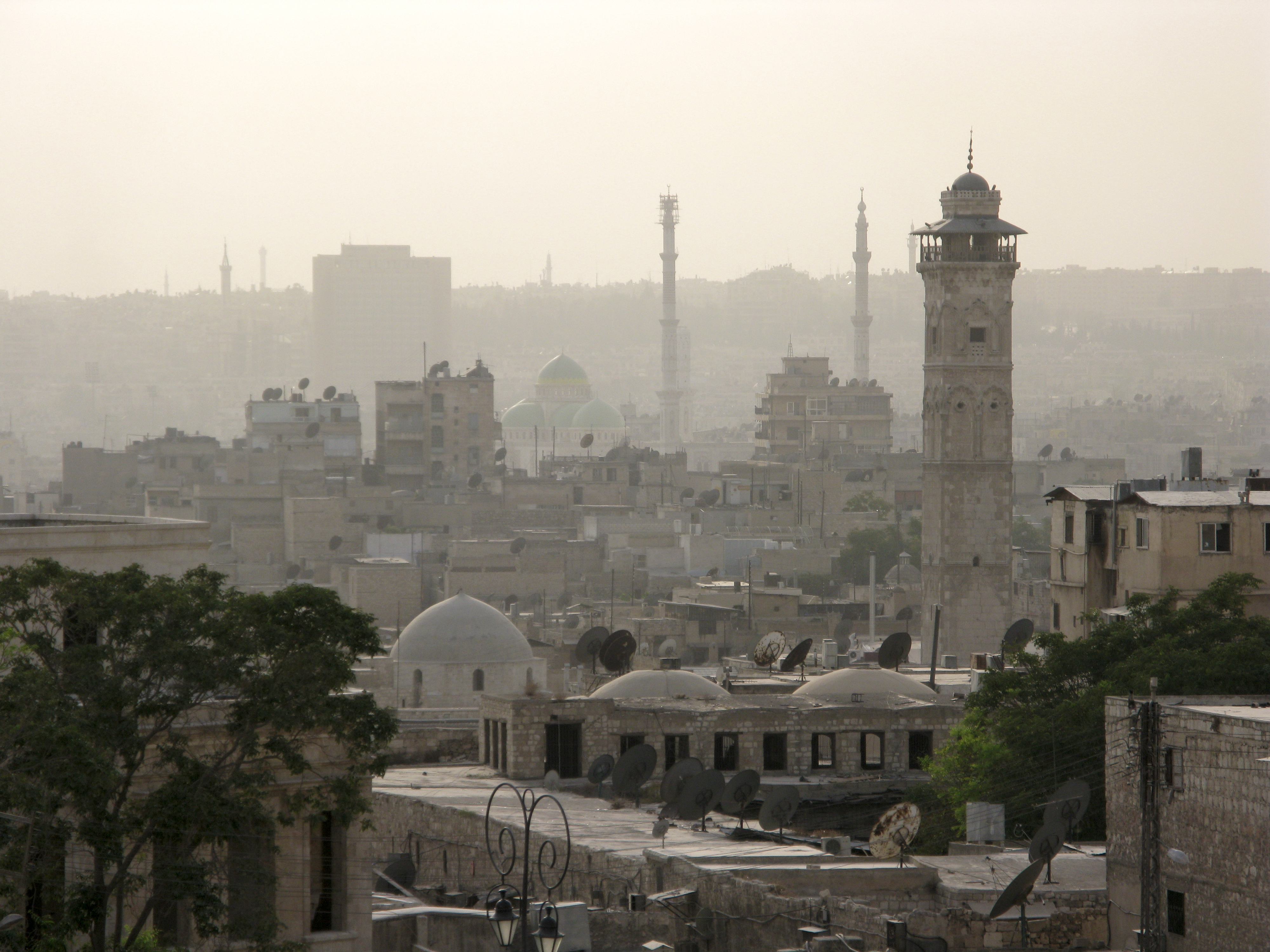|
Abd Al-Qadir Qaddura
Abd al-Qadir Qaddura ( ar, عبد القادر قدورة) was a Syrian politician who was a leading member of the Syria-based wing of the Ba'ath Party, in the era of President Hafez al-Assad (in power 1970–2000). Qaddura served as speaker of the People's Council—the Syrian parliament—for much of the 1990s. He lost his post on the Ba'ath Party's leading board, the Regional Command, in 2005, as President Bashar al-Assad retired several main names from the Hafiz era. Early life and education Born in 1935 in the Circassian village of Bariqa, Qaddura was the son of Ibrahim al-Mughribi, chief of the Damascus Police during the era of President Mohammad Ali al-Abid (1932–1936). Mughrabi, of Libyan origin, often advised his son not to work in politics, saying, "A stranger should behave...what do you think you are going to become, another Shukri al-Quwatli?" Qaddura studied briefly at the American University of Beirut, then went into the Chemistry Department at Damascus Univers ... [...More Info...] [...Related Items...] OR: [Wikipedia] [Google] [Baidu] |
List Of Speakers Of The Parliament Of Syria
The Speaker of the People's Assembly of Syria (Arabic: رئيس مجلس الشعب السوري rayiys majlis alshaeb alsuwrii) represents the People's Assembly of Syria, People's Assembly, Syria's legislature, signs documents and speaks on its behalf. Throughout its history, the Speaker has been responsible for representing the Assembly. As of 2017, 30 different people have served as speakers. Election A People's Assembly is elected every fourth calendar year. The first meeting of a newly elected People's Assembly is responsible for electing its Speaker. Powers The People's Assembly should meet at least three times a year, the Speaker has the power to convene an extraordinary meeting of the Assembly. The guards of the People's Assembly are under the authority of the Speaker. Presidential elections 60 days before the term of the President of Syria, President expires, the Speaker calls for new elections. All presidential candidates have to be approved personally by the Speaker. ... [...More Info...] [...Related Items...] OR: [Wikipedia] [Google] [Baidu] |
Shukri Al-Quwatli
Shukri al-Quwatli ( ar, شكري القوّتلي, Shukrī al-Quwwatlī; 6 May 189130 June 1967) was the first president of post-independence Syria. He began his career as a dissident working towards the independence and unity of the Ottoman Empire's Arab territories and was consequently imprisoned and tortured for his activism. When the Kingdom of Syria was established, Quwatli became a government official, though he was disillusioned with monarchism and co-founded the republican Independence Party. Quwatli was immediately sentenced to death by the French who took control over Syria in 1920. Afterward, he based himself in Cairo where he served as the chief ambassador of the Syrian-Palestinian Congress, cultivating particularly strong ties with Saudi Arabia. He used these connections to help finance the Great Syrian Revolt (1925–1927). In 1930, the French authorities pardoned Quwatli and thereafter, he returned to Syria, where he gradually became a principal leader of the Na ... [...More Info...] [...Related Items...] OR: [Wikipedia] [Google] [Baidu] |
Deputy Prime Ministers Of Syria
Deputy or depute may refer to: * Steward (office) * Khalifa, an Arabic title that can signify "deputy" * Deputy (legislator), a legislator in many countries and regions, including: ** A member of a Chamber of Deputies, for example in Italy, Spain, Argentina, or Brazil. ** A member of a National Assembly, as in Costa Rica, France, Pakistan, Poland or Quebec. ** A member of the Dáil Éireann (Lower House of the parliament of the Republic of Ireland) ** A member of the States of Guernsey or the States of Jersey elected by a parish or district ** Deputy (Acadian), a position in 18th-century Nova Scotia, Canada * Deputy Führer, a title for the deputy head of the Nazi Party * A subordinate ** Deputy premier, a subordinate of the Premier and next-in-command in the cabinet of the Soviet Union and its successor countries, including: *** First Deputy Premier of the Soviet Union *** Deputy Premier of the Soviet Union, a subordinate of the Premier and the First Deputy Premier and third-in ... [...More Info...] [...Related Items...] OR: [Wikipedia] [Google] [Baidu] |
Speakers Of The People's Assembly Of Syria
Speaker may refer to: Society and politics * Speaker (politics), the presiding officer in a legislative assembly * Public speaker, one who gives a speech or lecture * A person producing speech: the producer of a given utterance, especially: ** In poetry, the literary character uttering the lyrics of a poem or song, as opposed to the author writing the words of that character; see Character (arts) Electronics * Loudspeaker, a device that produces sound ** Computer speakers, speakers sold for use with computers ** Speaker driver, the essential electromechanical element of the loudspeaker Arts, entertainment and media * Los Speakers (or "The Speakers"), a Colombian rock band from the 1960s * ''The Speaker'' (periodical), a weekly review published in London from 1890 to 1907 * ''The Speaker'' (TV series), a 2009 BBC television series * "Speaker" (song), by David Banner * "Speakers" (Sam Hunt song), 2014 * ''The Speaker'', the second book in Traci Chee's Sea of Ink and Gold trilo ... [...More Info...] [...Related Items...] OR: [Wikipedia] [Google] [Baidu] |
Sami Khiyami
Sami Khiyami ( ar, سامي خيامي) is a Syrian diplomat, former Syrian ambassador to London. Background Born on 28 August 1948, Khiyami studied Electrical Engineering at the American University of Beirut in Lebanon, and Claude Bernard University Lyon 1, France. An electronics expert by training, he has held a number of professional roles, including senior advisor to the Syrian banking industry and a member of the board of Syrian Arab Airlines. He speaks Arabic, English, French, and German. Issues In July 2006, Khiyami announced to the London media that Syria was attempting to dissuade Hezbollah from continuing to launch rocket attacks on Israel, the latter being part of the claimed justification for Israel's July air strikes on Lebanon. Khiyami has also argued that the international community, when gauging its response to the Middle East conflict, should examine the totality of the conflict's victims. Khiyami was seen as collaborating closely with Ghayth Armanazi of the S ... [...More Info...] [...Related Items...] OR: [Wikipedia] [Google] [Baidu] |
Faris Al-Khoury
Faris al-Khoury ( ar, فارس الخوري, Fāris al-Khūrī) (November 20, 1877 – January 2, 1962) was a Syrian statesman, minister, prime minister, speaker of parliament, and father of modern Syrian politics. Faris Khoury went on to become prime minister of Syria from October 14, 1944, to October 1, 1945, and from October 1954 to February 13, 1955. Faris Koury's position as prime minister is, as of 2017, the highest political position a Syrian Christian has ever reached. Khoury's electoral popularity was due in part to his staunch secularist and nationalist policies. As a die-hard Syrian nationalist, Khoury never compromised on his principles and was resolutely against pan-Arabism and the ill-fated union between Syria and Egypt. Khoury opposed the short-lived union between Nasser's Egypt and republican Syria, the United Arab Republic. Through it all Faris Khoury served his country for almost 50 years. He was the grandfather of noted Syrian novelist Colette Khoury. Early year ... [...More Info...] [...Related Items...] OR: [Wikipedia] [Google] [Baidu] |
Hafiz Al-Assad
Hafez al-Assad ', , (, 6 October 1930 – 10 June 2000) was a Syrian statesman and military officer who served as President of Syria from taking power in 1971 until his death in 2000. He was also Prime Minister of Syria from 1970 to 1971, as well as regional secretary of the regional command of the Syrian regional branch of the Arab Socialist Ba'ath Party and secretary general of the National Command of the Ba'ath Party from 1970 to 2000. Assad participated in the 1963 Syrian coup d'état which brought the Syrian regional branch of the Arab Socialist Ba'ath Party to power, and the new leadership appointed him commander of the Syrian Air Force. In February 1966, Assad participated in a second coup, which toppled the traditional leaders of the Ba'ath Party. Assad was appointed defence minister by the new government. Four years later, Assad initiated a third coup which ousted the ''de facto'' leader Salah Jadid and appointed himself as leader of Syria. Assad imposed c ... [...More Info...] [...Related Items...] OR: [Wikipedia] [Google] [Baidu] |
People's Party (Syria)
The People's Party ( ar, حزب الشعب ''Ḥizb aš-Šaʿb''; french: Parti du peuple) was a Syrian political party that dominated Syrian politics during the 1950s and the early 1960s. The party was officially founded in August 1948 by Rushdi al-Kikhiya, Nazem al-Qudsi and Mustafa bey Barmada. It saw its greatest levels of support among Aleppo merchants, bankers and those in agriculture in surrounding areas. It supported closer ties with Hashemite-ruled Iraq and Jordan, although some members also supported closer ties with Lebanon Lebanon ( , ar, لُبْنَان, translit=lubnān, ), officially the Republic of Lebanon () or the Lebanese Republic, is a country in Western Asia. It is located between Syria to Lebanon–Syria border, the north and east and Israel to Blue .... Similar to its rival, the National Party, it was also popular among landowners and landlords. In recent years there have been discussions about reviving the party in some form following the libe ... [...More Info...] [...Related Items...] OR: [Wikipedia] [Google] [Baidu] |
Aleppo
)), is an adjective which means "white-colored mixed with black". , motto = , image_map = , mapsize = , map_caption = , image_map1 = , mapsize1 = , map_caption1 = , pushpin_map = Syria#Mediterranean east#Asia#Syria Aleppo , pushpin_label_position = left , pushpin_relief = yes , pushpin_mapsize = , pushpin_map_caption = Location of Aleppo in Syria , coordinates = , subdivision_type = Country , subdivision_name = , subdivision_type1 = Governorate , subdivision_type2 = District , subdivision_type3 = Subdistrict , subdivision_name1 = Aleppo Governorate , subdivision_name2 = Mount Simeon (Jabal Semaan) , subdivision_name3 = Mount Simeon ( ... [...More Info...] [...Related Items...] OR: [Wikipedia] [Google] [Baidu] |
Rushdi Al-Kikhya
Rushdi al-Kikhya ( ar, رشدي الكيخيا; 1899– 14 March 1987) was a Syrian political leader who founded the People's party in 1948. Kikhya was elected as a Speaker of the Parliament of Syria between 1949 and 1951, and he was elected five terms as a member of the Syrian Parliament (MP) (1936, 1943, 1947, 1949 and 1954). Kikhiya also served as minister of interior in 1949. Career Rushdi al-Kikhya was born and raised in Aleppo and studied law at the Sorbonne in Paris. In 1939, Kikhya clashed with the Bloc leadership, however, over their failure to prevent Turkey's annexation of the Sanjak of Alexandretta, territory in northern Syria that had once been part of the Ottoman Empire. Kikhya joined Nazem al-Qudsi , also form Aleppo, and campaigned against the election of Shukri al-Quwatli, the National Bloc candidate for the presidency in 1943. In 1948, Kikhiya founded the People's party with Nazem al-Qudsi and Mustafa Bey Barmada. Khikhya supported the coup that ousted ... [...More Info...] [...Related Items...] OR: [Wikipedia] [Google] [Baidu] |
Tadmor Prison
Tadmor prison ( ar, سجن تدمر) was located in Palmyra (''Tadmor'' in Arabic) in the deserts of eastern Syria approximately 200 kilometers northeast of Damascus. Tadmor prison was known for harsh conditions, extensive human rights abuse, torture and summary executions. A 2001 report by Amnesty International called it a source of "despair, torture and degrading treatment." It was captured and destroyed by militants of the Islamic State of Iraq and the Levant (ISIL) in May 2015. History Founding The structures were originally built as military barracks by the French Mandate forces. Prison massacre During the 1980s, Tadmor prison housed thousands of Syrian prisoners, both political and criminal and it was also the scene of the June 27, 1980 ''Tadmor Prison massacre'' of prisoners by Rifaat al-Assad, the day after the Syrian branch of the Islamist Muslim Brotherhood narrowly failed in an attempt to assassinate his brother, president Hafez al-Assad. Members of units of the Def ... [...More Info...] [...Related Items...] OR: [Wikipedia] [Google] [Baidu] |
Salah Jadid
Salah Jadid (1926 – 19 August 1993, ar, صلاح جديد, Ṣalāḥ Jadīd) was a Syrian general, a leader of the left-wing of the Arab Socialist Ba'ath Party in Syria, and the country's ''de facto'' leader from 1966 until 1970, when he was ousted by Hafez al-Assad's Corrective Movement. Early life and career Jadid was born in 1926 in the village of Dweir Baabda, near the coastal city of Jableh, to an Alawite family of the Haddadin tribe. However, there is another report stating his birth year as 1924. He studied at the Homs Military Academy, and entered the Syrian Army in 1946. Jadid was originally a member of the Syrian Social Nationalist Party (SSNP), but later became a member of the Arab Socialist Ba'ath Party, led by Michel Aflaq and Salah al-Din al-Bitar, in the 1950s through an associate of Akram al-Hawrani. Even so, Jadid remained close to the SSNP; his brother, Ghassan, was one of its most prominent members in Syria. He changed allegiance again in the 1950s, ... [...More Info...] [...Related Items...] OR: [Wikipedia] [Google] [Baidu] |



